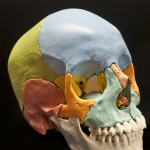
The use of zygomatic implants have been suggested for severely atrophic fully and partially edentulous maxillae to avoid use of sinus lifts, or other bone augmentation procedures and also for maxillary reconstruction after partial or total maxillectomy. The aim of this review was to evaluate clinical studies on the follow-up survival of implants inserted in the zygomatic bone for maxillary rehabilitation.
Searches were conducted in the PubMed/MED- LINE, Embase, and Cochrane Library databases. Clinical studies reporting use of zygomatic implants with at least 2-years follow up were included. Randomized controlled clinical trials (RCTs), cohort studies, case–control studies, and cross- sectional studies were included. Survival of zygomatic implants was calculated using the Kaplan–Meier method.
- 25 studies (1541 implants) were included and 33 failures/losses were reported.
- 15 studies conducted late loading (prosthesis insertion at 4–6 months after initial implant loading), and 10 studies reported immediate loading.
- The survival rate of zygomatic implants for the 25 studies was 97.86% after 36 months
The authors concluded
Zygomatic implants appear to be an effective alternative for the treatment of an atrophic maxilla. The survival rate decreases during the first year after surgery and is more related to local infection than to the number of zygomatic implants. The survival of osseointegrated implants may also be related to the use of suitable pre-surgical examinations and the parameters used during the surgical procedures.
Comment
While this review is useful in that it brings together a good deal of information about the use of zygomatic there is no indication of the types of studies included and no formal indication of the quality of those included studies is reported. The Cochrane review of this topic by Esposito et al in 2013 did not identify any randomised controlled trials on this topic and the latest study included in this new review was published in 2012. This would indicate that there is a need for high quality studies to assess the effectiveness of zygomatic implants and that the findings of this review should be treated with caution.
Links
Goiato MC, Pellizzer EP, Moreno A, Gennari-Filho H, Dos Santos DM, Santiago JF Jr, Dos Santos EG. Implants in the zygomatic bone for maxillary prosthetic rehabilitation: a systematic review. Int J Oral Maxillofac Surg. 2014 Feb 13. pii: S0901-5027(14)00009-5. doi: 10.1016/j.ijom.2014.01.004. [Epub ahead of print] Review. PubMed PMID: 24530034.
Esposito M, Worthington HV. Interventions for replacing missing teeth: dental implants in zygomatic bone for the rehabilitation of the severely deficient edentulous maxilla. Cochrane Database of Systematic Reviews 2013, Issue 9. Art. No.: CD004151. DOI: 10.1002/14651858.CD004151.pub3

Zygomatic implants for maxillary rehabilitation http://t.co/SgPzCy9Wcc
Zygomatic implants for maxillary rehabilitation – The Dental Elf http://t.co/bKc9meVxID